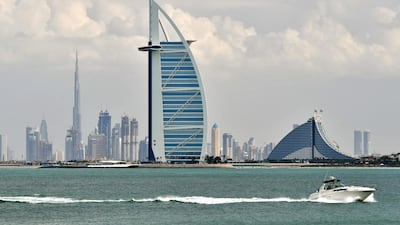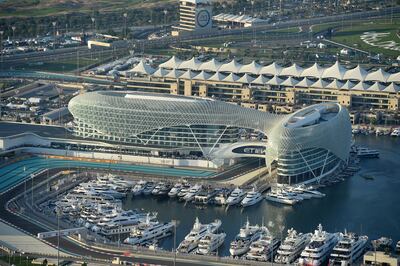Hotels in the Middle East recorded higher occupancy rates this Ramadan, compared with last year, as the region recovers from the Covid-19 pandemic.
Average occupancy rates stood at 53.1 per cent during the week from May 10 to 16, when Eid was celebrated, according to hotel data specialist STR.
The figure is slightly below occupancy rates recorded in 2019.
“Muslims worldwide have marked Ramadan in decidedly different ways over the past two years but for the Middle East, there is a sense of some normality as vaccinations expand and domestic restrictions are lifted,” said Philip Wooller, STR’s area director for the Middle East and Africa.
“Key markets in the region have been outperforming their global peers and near-normal occupancy levels for the holy month are another good indicator for the industry moving forward.”
Movement restrictions drove down average hotel occupancy rates around the world last year.
However, a wider distribution of vaccines has supported the resumption of travel and improved the hospitality sector’s outlook.
The recovery of the UAE’s hospitality and tourism industry is expected to hasten this year, driven by its Covid-19 vaccine push and relaxed travel restrictions for some markets, according to government officials and hoteliers.
STR said Sharjah, Abu Dhabi and Dubai had hotel occupancy rates of 67.2 per cent, 63.6 per cent and 59.7 per cent, respectively, during the reporting period.
Abu Dhabi expects its hotel occupancy rates to increase to at least 80 per cent this year, from 70 per cent in 2020, Saood Al Hosani, undersecretary of the Department of Culture and Tourism Abu Dhabi, told The National last week.
The UAE capital is also planning to remove Covid-19 quarantine restrictions for international travellers from July 1, apart from visitors from India, and expand its green travel list to boost inbound tourism.
Meanwhile, Dubai hosted more than 810,000 international guests in January and February and expects to attract more visitors this year. The emirate welcomed 5.51 million visitors last year, according to Dubai Tourism.
The Saudi Arabian cities of Al Khobar and Jeddah registered 63.5 per cent and 58.6 per cent hotel occupancy rates respectively during the period, according to STR.



